National Student Pride celebrates 20th Anniversary by looking at the ‘Future of Pride’ with Natasha Devon MBE, Juno Dawson, Misia Butler and Milena Sanchez
National Student Pride celebrated its 20th anniversary by looking to the future in their mainstage panel, Queer Question Time: The Future of Pride, which was hosted by Natasha Devon MBE (activist, author and speaker) and included Misia Butler (actor), Juno Dawson (author and activist), Benjy Kusi (a
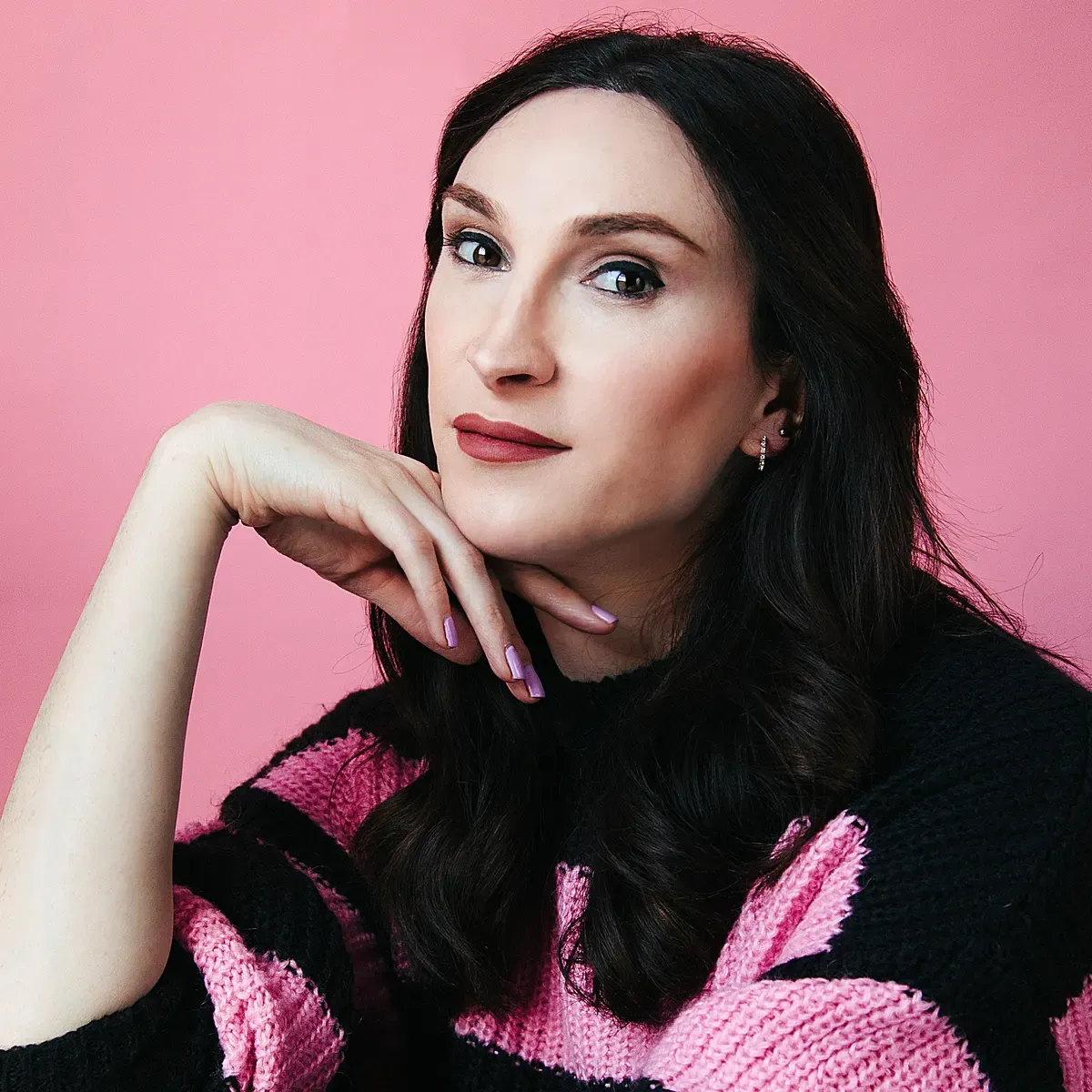
National Student Pride celebrated its 20th anniversary by looking to the future in their mainstage panel, Queer Question Time: The Future of Pride, which was hosted by Natasha Devon MBE (activist, author and speaker) and included Misia Butler (actor), Juno Dawson (author and activist), Benjy Kusi (author, inclusion consultant and content creator) and Milena Sanchez (singer-songwriter, podcaster and author).
The expert panel took to the stage at the UK’s largest LGBTQ+ student event to discuss the current challenges facing the LGBTQ+ community, social media, and where Pride is going next.
Natasha Devon opened the discussion by acknowledging the challenges facing the LGBTQ+ community in 2025, with Donald Trump’s re-election, a rollback on DEI initiatives and the impact this is having on British companies “taking their cue to do the same”.
Juno Dawson added, “at times of political and economic unrest we know from history, fascism breeds,” going on to suggest, “corporations have never been an ally to queer people”. She described the current climate for queer people as the “middle of a perfect storm of shit where it is so much easier to blame a twink with pronouns”.
Milena Sanchez spoke on the privilege and hypocrisy when “people who haven’t gone through what we have make the decisions”. Additionally, Misia Butler, on his experience in the TV and Film industry, said “they loved putting diverse people in front of the screen, but, everyone behind the camera was a cis, white man”.
Referencing her upcoming episode in Doctor Who, Juno Dawson raised how there are no trans people with the equivalent power of “Russell T Davies in Hollywood”, asking, “who is going to create spaces for us in the industry”. Natasha Devon added, “when you have representation without power underneath, you give them a stick to beat us with”.
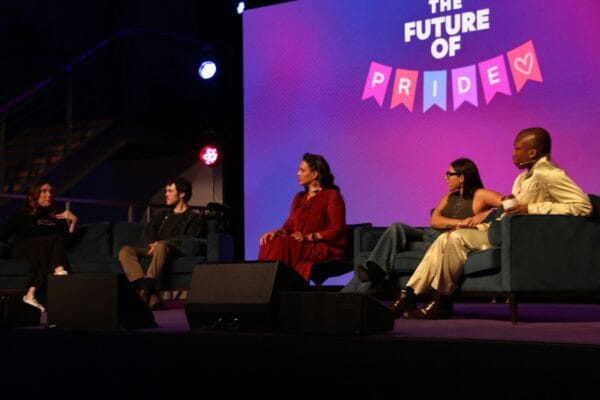
The panel then discussed the challenges of social media, noting that they all earn income from online platforms. Benjy Kusi discussed his work with TikTok on online safety, saying “it’s tough to be a visible queer person” online.
Milena Sanchez spoke on sharing her partner on social media, “I delete a 1,000 comments a day that tell me I’m going to hell,” and the double-edged sword of using the platform to be an educator and safe space, whilst also opening yourself up to a “pool of hatred”.
Juno Dawson described social media as a weapon, saying “they want us to be constantly plugged into a negative stream of messages, designed to make us scared.” Suggesting the future of pride may be in removing ourselves from these platforms; “Princess Leia was not on LinkedIn, the Jedi were not on Instagram!”.
On his experience online, Misia Butler commented “I see so much hate,” sharing the importance of filtering out that abuse because it “isn’t a normal thing”. Natasha Devon echoed the importance of digital self care, highlighting the work of Glitch charity.
Natasha Devon closed the conversation by asking the panellists about their vision for the future of pride. Benjy Kusi commented on the need for “all of us using our circle of influence to make a difference… using the tools we have to push for a better future”.
Milena Sanchez raised the importance of celebrating who you are authentically, describing the future of pride as “being your true authentic self”. For Misia Butler, the future of pride is in “intersectionality, community and connection”, finding an “interpersonal, intercommunity feeling of joy”.
Finally, Juno Dawson shared the future was in grassroot and local community pride, asking the question “do young people want events like this or not?” in reference to National Student Pride, “in another 10 years will there be a London Pride?”
Support independent LGBTQ+ journalism
Scene was founded in Brighton in 1993, at a time when news stories about Pride protests were considered radical. Since then, Scene has remained proudly independent, building a platform for queer voices. Every subscription helps us to report on the stories that matter to LGBTQ+ people across the UK and beyond.
Your support funds our journalists and contributes to Pride Community Foundation’s grant-making and policy work.
Subscribe today

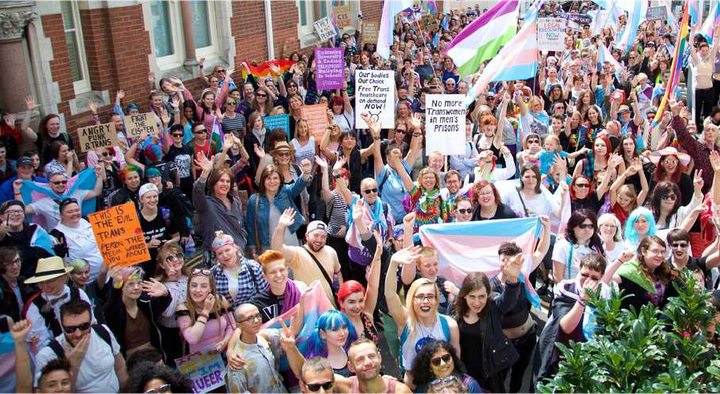
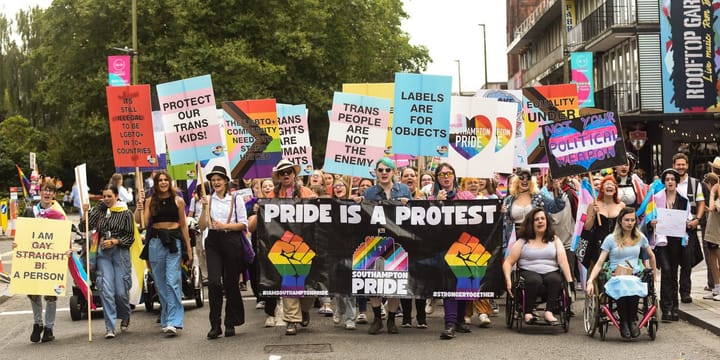
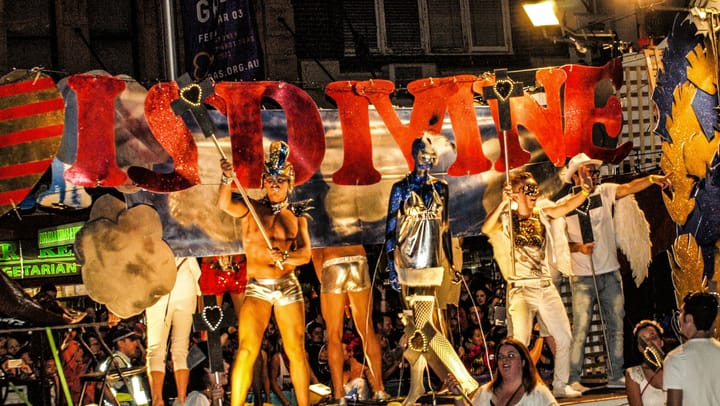
Comments ()